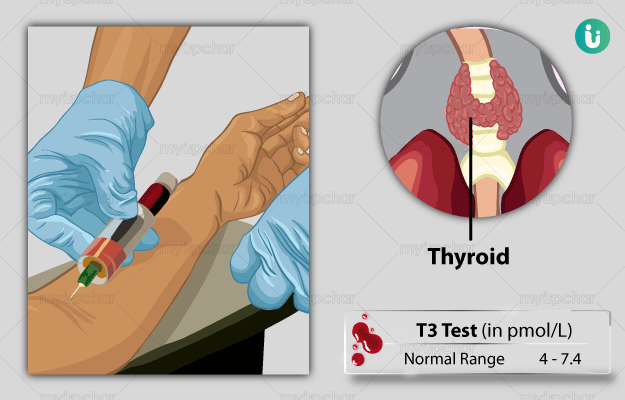What is a Triiodothyronine (T3) test?
A T3 test is done to measure the amount of T3 hormone in your blood. T3 is produced along with T4 or thyroxin hormone by the thyroid gland in response to thyroid-stimulating hormone (TSH), a pituitary hormone. Some amount of T3 is also produced from T4 in body tissues.
Both these hormones help maintain various body functions including breathing, functioning of the heart and nervous system, controlling body temperature and cholesterol level and maintaining regular menstruation in women. They are available in two forms in the body:
- Bound
- Free
Overproduction of T3 or T4 will result in the onset of symptoms of hyperthyroidism, and their underproduction results in hypothyroidism. So, by assessing T3 levels, this test helps diagnose thyroid dysfunctions.
































